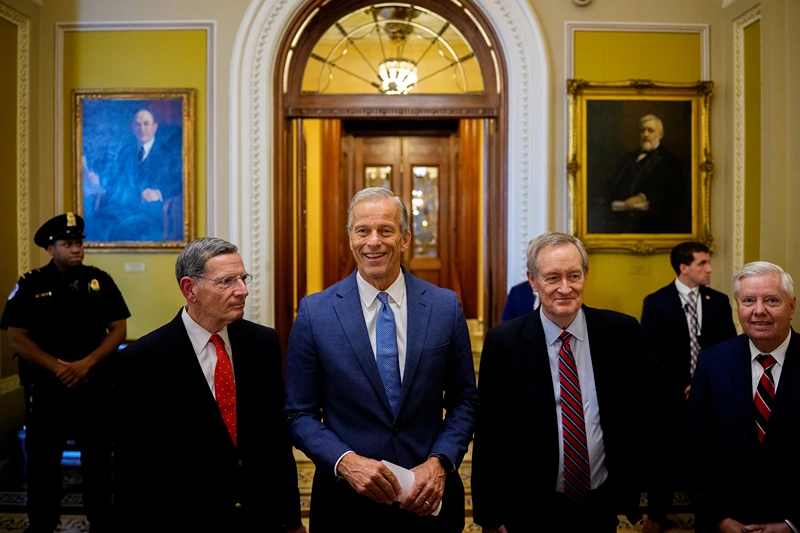
OAN Staff Blake Wolf
10:19 AM – Tuesday, July 1, 2025
The Senate passed President Donald Trump’s “One Big, Beautiful Bill” on Tuesday after a marathon session of voting on amendments, with Vice President JD Vance issuing the tie-breaking vote.
Regarding GOP detractors, Republican Senators Thom Tillis (R-N.C.), Susan Collins (R-Maine), and Rand Paul (R-Ky.) all voted against the bill, ultimately creating a 50-50 tie — which prompted Vice President JD Vance to break the tie in favor of passing the bill.
The overnight voting session lasted over 24 hours as senators voted on dozens of proposed changes to the legislation, passing the bill back to the House for a final vote before being ready to sign on Trump’s desk.
Among other measures, the bill includes an extension of President Trump’s 2017 tax cuts, additional funding for border security, no tax on tips, and no tax on overtime. It also retracts taxpayer-funded benefits for illegal aliens. Specifically, it aims to end access to Medicaid and Obamacare premium tax credits for those not legally present in the United States — while raising the debt ceiling by $5 trillion.
Following the passage of the bill, Vance issued an update on social media, writing: “Massive tax cuts, especially no tax on tips and overtime. And most importantly, big money for border security. This is a big win for the American people.”
The Senate also successfully voted on an amendment to remove the provision banning states from regulating AI for 10 years.
“The Senate came together tonight to say that we can’t just run over good state consumer protection laws,” stated Maria Cantwell (D-Wash.). “States can fight robocalls, deep fakes and provide safe autonomous vehicle laws. This also allows us to work together nationally to provide a new federal framework on Artificial Intelligence that accelerates U.S. leadership in AI while still protecting consumers.”
A large contention of the bill for some Americans is the $1.2 trillion in cuts, which mainly appear in cuts to Medicaid and food stamps, through stricter sign-up eligibility — such as work requirements for able-bodied individuals. Trump has stated that this measure will prevent individuals who have been unjustly exploiting these programs from continuing to do so.
Nonetheless, the bill now faces a final hurdle in the House, posing a challenge for Speaker Mike Johnson (R-La.), as GOP “fiscal hawks” are likely to challenge the Senate’s version, which adds $1 trillion to the deficit—absent from the House’s version passed in May.
Stay informed! Receive breaking news alerts directly to your inbox for free. Subscribe here. https://www.oann.com/alerts
What do YOU think? Click here to jump to the comments!
Sponsored Content Below

